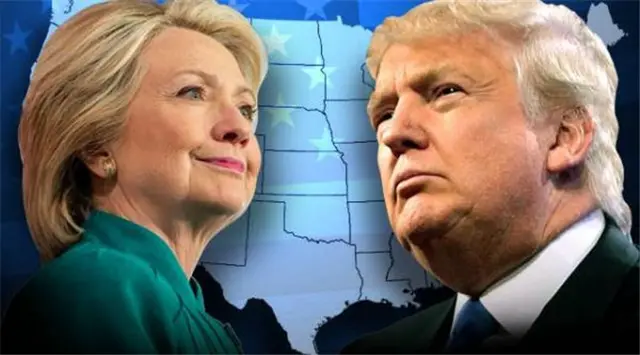Although Egyptian President Abdel-Fattah al-Sisi has recently met in New York with U.S. presidential candidates Donald Trump and Hillary Clinton, many Egyptian citizens don't seem to care as much as their leader does about who the next U.S. president will be.
"It does not matter who the next U.S. president is. They are all the same. It's the same policy with different faces," 42-year- old accountant Ahmed Mohamed told Xinhua in one of the main streets in Cairo downtown.
The lack of interest shown by many Egyptians is not out of the blue, as they had been disappointed in outgoing U.S. President Barack Obama after pinning hope on the man when he made his first address to the Muslim and Arab world from Cairo University in mid- 2009 with the theme of "a new beginning."
They thought the U.S. policies with Arabs and Muslims that are based on interference and are always biased in favor of its number one Middle East ally Israel would change under Obama, but his eight years in the White House proved them wrong.
"We thought Obama was the closest to Arabs and Muslims due to his African origin and his promises, but he failed us," Mohamed lamented, adding that "although right-winger Trump seems more aggressive, Clinton would not be an angel."
Some Egyptians, like 28-year-old Taher Mahmoud, do not even know who the U.S. presidential candidates are or when the elections, scheduled for November, will be.
"I am not interested to know. I care only about my country. I know this is not good, but I am too busy with finding a job to care about the United States," Mahmoud said near a coffee shop at overcrowded King Faisal Street in Giza province.
Trump spoke out some anti-Muslim statements that are thought to be further promotion of American Islamophobia, which made many Egyptians think he would make "a racist president" if elected.
On the other hand, Clinton is not so favored by Egyptians due to her initial support of former long-time leader Hosni Mubarak ahead of an uprising that led to his ouster in February 2011.
Abdel-Aziz, a 50-year-old barber nicknamed Zizo, accused the U. S. administration of racism, referring to the recent violent issues between some American policemen and African-American citizens.
With regards to the U.S. ultimate support for Israel and how the Middle Eastern ally affects the U.S. presidential elections, Zizo expressed belief that "the next U.S. president, like his predecessors, is determined by the pro-Israel lobby in the U.S. Congress."
During Sisi's meeting with Trump on the sidelines of the UN General Assembly, the Republican billionaire assured the Egyptian strongman that the United States will be "a loyal friend" to Egypt if he becomes president.
As for Clinton, she talked more with Sisi about rights, freedoms and civil society organizations and the Egyptian president explained how Egypt is working on building up a modern country that upholds the rule of law and respects human rights and liberties.
However, experts believe that neither Trump nor Clinton would make a drastic change in U.S. policy toward Egypt, despite the annual military aid of 1.3 billion dollars provided by the United States to the most populous Arab state.
Hani al-Gamal, head of Kenana Center for Political and Strategic Studies, said that whoever thinks Clinton or Trump will make a possible change in the U.S. policy toward Egypt is wrong, arguing that the U.S. has a fixed foreign policy and there are no main differences between the Republican and Democratic parties.
"The Egyptian people learned the lesson well. They previously bet on several U.S. presidents who sounded different, such as Jimmy Carter, Bill Clinton and Barack Obama, but they lost in each time," the expert told Xinhua.
(APD)
 简体中文
简体中文

